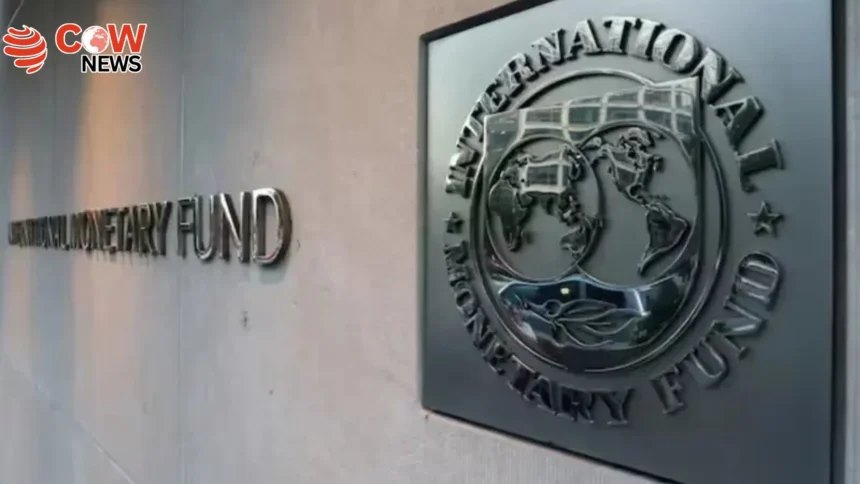ISLAMABAD:( The COW News Digital)-Power Secretary Dr Fakhray Alam Irfan informed the Senate Standing Committee on Power — chaired by Senator Mohsin Aziz — that all significant power sector reforms now require IMF clearance. Although Pakistan currently has surplus electricity, especially during winter, the IMF is wary of any tariff structures that could distort the energy market.
In September 2024, the Power Division had proposed a six-month scheme for incremental electricity consumption at a marginal cost of Rs23/kWh. However, following two months of negotiations, the IMF approved only a shortened three-month version, citing concerns over market distortions.
In November 2024, the government proposed a targeted tariff plan at Rs22–23/kWh for energy-intensive industries like data centers, copper and aluminium production, and crypto mining. Officials argued this would boost usage of excess electricity and reduce capacity charges. The IMF, however, rejected the plan, equating it to sector-specific tax holidays that historically led to market imbalances.
Dr Irfan confirmed that the IMF has not approved the plan but clarified that it remains under review by the World Bank and other international partners. He stressed that the proposal hasn’t been withdrawn and that discussions with development institutions are ongoing.
The committee meeting also witnessed a sharp exchange over the government’s deal with commercial banks to manage Rs1.275 trillion in circular debt. Senator Shibli Faraz alleged banks were coerced into the agreement and warned of future levies burdening consumers. He said, “If I were a banker, I would have refused.”
Dr Irfan rejected these claims, asserting that no new levies were imposed. He said the existing Rs3.23/kWh Debt Servicing Surcharge (DSS) would continue for five to six more years to repay the loan, and that circular debt inflows had been reduced through timely subsidies.
On consumer facilitation, the Secretary shared that over 500,000 people have downloaded the “Apna Meter Apni Reading” mobile app, which lets users submit meter reading photos to help reduce overbilling. The app will soon be expanded to K-Electric customers.
The committee expressed disappointment at the absence of the Federal Minister for Power, who was expected to address critical issues around Independent Power Producers (IPPs) and inefficiencies in the energy sector.
Senator Mohsin Aziz called the establishment of certain IPPs unjust, while Senator Shibli Faraz claimed inflated project costs led to excessive profits. He criticised the lack of genuine efforts to resolve the circular debt crisis, saying, “The public is paying for the government’s failures.”
Senators also raised concerns about forced load shedding in areas like Tharparkar, Matiari, and Umerkot — where outages last up to 14 hours daily despite bill payments. Senator Poojo Bheel accused local officials of accepting bribes to restore illegal connections, depriving honest consumers of their rights.
Dr Irfan explained that revenue-based load shedding is implemented in regions with over 20% power losses. He cited a recent incident where a SEPCO employee was fatally attacked during a disconnection drive.
K-Electric’s Chief Distribution Officer, Sadia Dada, said 30% of its 2,100 feeders face outages due to widespread electricity theft via illegal hooks (kundas) in informal areas. To ease the burden on consumers, KE now allows bill payments in instalments.
Dr Irfan noted that 58% of domestic consumers fall under the “protected” category and pay only Rs 0 per unit. With donor approval, Rs 250 billion in power subsidies will be disbursed, along with expanded tech-based solutions to curb theft. The meter reading app has seen over 250,000 registered users so far.
Senator Haji Hidayatullah raised a corruption complaint involving a Rs2.3 million electricity bill in Peshawar, which had already been cleared. He claimed PESCO officials offered to settle it for Rs300,000 — a case Secretary Irfan vowed to investigate.
HAZECO’s CEO also briefed the committee on challenges in Lora Chowk Sub-Division, including faulty meters, persistent feeder issues, and delayed work under specific project codes.
After a lengthy session, the Senate committee criticised the Power Division’s failure to provide clear answers and directed the department to submit detailed responses at the next meeting






